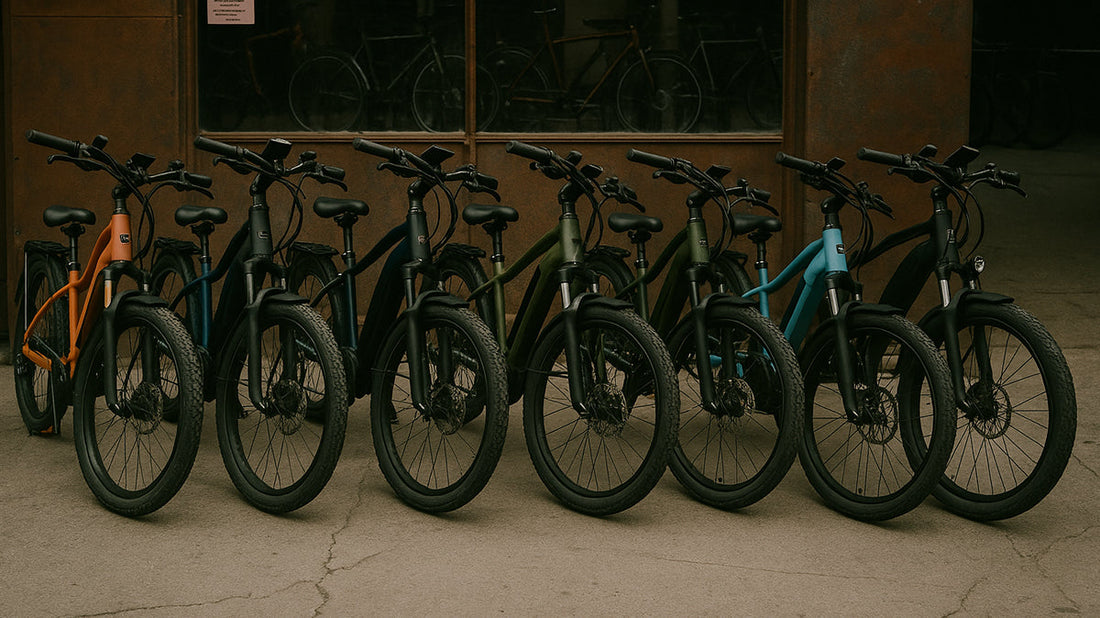
As cities grapple with rising congestion, pollution, and the demand for sustainable transport, electric bikes (ebikes) have emerged as a smart, efficient, and eco-friendly solution for daily commuting. Once viewed as a niche option for cycling enthusiasts, ebikes are now becoming mainstream across the UK, driven by advances in technology, supportive government policies, and shifting lifestyle priorities.
In this article, we explore the key reasons why more people are choosing ebikes for their daily commute—and why it might be time to consider one for yourself.
A Surge in Popularity: The Ebike Market Boom
The global ebike market has experienced significant growth in recent years. According to Statista, the market was valued at approximately US$45 billion in 2023, with projections suggesting it could exceed US$70 billion by 2030. In the UK, this surge is even more evident in urban areas, where commuters are actively seeking alternatives to cars and public transport.
A 2023 report from Mintel found that one in five UK adults are considering an ebike as a viable transport option, particularly in cities like London, Manchester, and Bristol.
1. Cost-Efficient Commuting
The rising cost of fuel, vehicle maintenance, insurance, and parking has made car ownership increasingly unaffordable for many. Ebikes offer a low-cost alternative with minimal running expenses. A full charge typically costs just a few pence, and servicing costs are significantly lower than those of a car or motorbike.
In the UK, schemes like the Cycle to Work Scheme allow employees to purchase ebikes through salary sacrifice, saving up to 42% on the cost of a new bike. This has made ebikes even more accessible and appealing to commuters looking to cut travel expenses.
2. Faster, Flexible Urban Travel
Ebikes offer the freedom to bypass traffic jams, reduce travel time, and enjoy a more predictable commute. With pedal-assist technology, riders can travel at speeds of up to 15.5 mph (25 km/h) without breaking a sweat—ideal for longer distances or hilly terrain.
In dense urban environments, ebikes are often faster than cars or buses during peak hours. A study by Transport for London (TfL) found that cycling journeys in central London are 50% faster on average than car journeys during rush hour.
3. Environmental Sustainability
With mounting pressure to reduce carbon emissions and air pollution, ebikes present a greener commuting option. They produce zero tailpipe emissions and have a far lower carbon footprint than petrol or diesel vehicles.
A 2022 report from the European Cyclists’ Federation (ECF) highlighted that replacing short car journeys with ebike rides could reduce CO₂ emissions by up to 90% per trip. For environmentally conscious individuals, this makes ebikes an impactful choice.
4. Health Benefits Without Overexertion
Ebikes offer the perfect balance of physical activity and convenience. Commuters still pedal and engage in moderate exercise, but the electric motor provides assistance when needed—especially helpful for hills, wind, or fatigue.
A 2021 study published in the International Journal of Behavioral Nutrition and Physical Activity found that ebike riders gain similar health benefits to traditional cyclists, including improved cardiovascular health and mental wellbeing.
5. Technological Advancements and Smarter Features
Modern ebikes come equipped with features such as GPS tracking, integrated lights, theft alarms, and smartphone connectivity. Leading models from brands like VanMoof, Cowboy, and Specialized are designed to integrate seamlessly into urban lifestyles.
Battery technology has also advanced significantly. Many ebikes now offer ranges of 40–100 miles per charge, depending on terrain and usage, with charging times as low as 3 hours.
6. Government Support and Infrastructure Improvements
The UK government has made active travel a priority, investing in infrastructure such as dedicated bike lanes, secure bike parking, and safer road designs. As part of its Gear Change strategy, the Department for Transport pledged £2 billion to boost cycling and walking.
Additionally, several cities are trialling low-traffic neighbourhoods and congestion charges that favour cyclists and penalise car use. These changes are helping to create a safer and more appealing environment for daily ebike commuting.
Final Thoughts
Ebikes are more than just a trend—they’re a practical, cost-effective, and sustainable solution to modern commuting challenges. With increasing support from local authorities, growing consumer interest, and rapid technological innovation, the shift towards electric cycling is accelerating across the UK.
Whether you’re looking to reduce your carbon footprint, save money, or simply enjoy a more efficient ride to work, an ebike might be the perfect choice.

